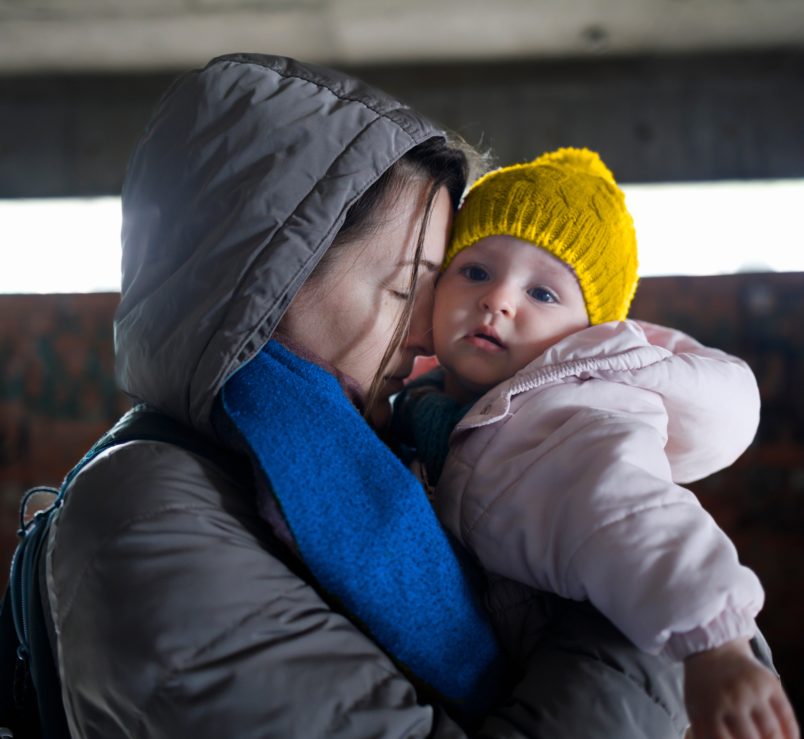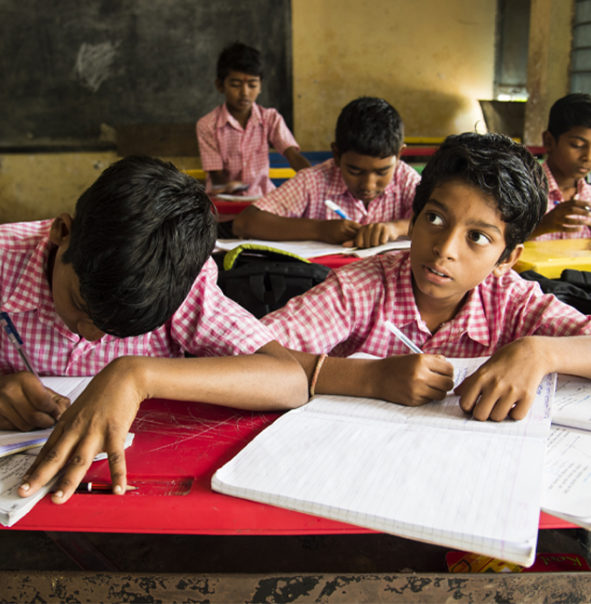Monitoring the provision of Early Childhood Education and Care (ECEC) services for Ukrainian refugee children and their families in Europe
In May 2022, UNICEF commissioned Ecorys to carry out a Situation analysis of early childhood education and care (ECEC) services[1] in support of Ukrainian refugees across European Union (EU) member states and Moldova.
Over three cycles, the research aims to provide insights to the emerging country level response to the crisis, and to inform the work of UNICEF and partners in the EU and in Ukraine’s neighboring countries. It also aims to support EU Member States and Moldova to learn from policies and practices to inform their ongoing actions regarding ECEC provision for Ukrainian refugee children aged 0-6 years, and their families at national and sub-national levels.
The study is being carried out in close cooperation with the European Commission (DG EAC) and members of the EU Working Group on Early Childhood Education and Care (ECEC) [2], who have provided invaluable support with refining the Analytical Framework and framing the key issues for the research.
Methodology
The study methodology includes:
- a rapid desk review and mapping of ongoing and emerging ECEC responses to the Ukrainian refugee crisis in the EU27 and Moldova, covering legal, financial and administrative and programming initiatives, supplemented with key stakeholder consultations.
- comparative analyses and synthesis of findings from the mapping, repeated over three cycles.
- preparation of three summary reports.
The work is being carried out by a joint team from Ecorys UK and Ecorys Poland, supported by in-house and associate researchers with language and country expertise covering all EU member states plus Moldova.
Emerging findings
The research elaborates the steps undertaken by EU Member States and Moldova, to mobilise and respond to secure access to high quality ECEC services for Ukrainian refugee children and their families. Overall:
An impressive range of ECEC programmes, frameworks and tools has been developed across Europe, with strong cross-sectoral collaboration. The situation has presented opportunities by:
- challenging public authorities and NGOs to collaborate and to ‘think outside of the box’ in their approach towards planning ECEC provision, initiating new partnerships and delivery models.
- stress-testing national ECEC systems and prompting action on pre-existing capacity issues.
- leveraging additional investments for ECEC, with potential benefits for the wider system.
The research provides insights to factors that have enabled the ECEC response. It shows that:
- no one-size-fits-all, and solutions must be tailored to the circumstances in each country, according to refugee numbers and status, system capacity, and the organisation of decision-making between national and sub-national levels and between 0-3 and 3-6 age ranges.
- countries adopting a whole-system approach towards the inclusion of migrant children and families in ECEC provision reported adjusting more rapidly. Similarly, those taking prior systemic actions on access and inclusion (e.g. during the Syrian refugee crisis) were often better prepared.
- hallmarks of effective refugee education are present among the 28 countries. These include multiagency and cross-sectoral solutions to meet refugee families’ housing, health and education needs in tandem; intercultural education and language learning, and workforce development measures alongside the primary focus on access and enrolments in ECEC.
Despite best efforts, however, the scale of the ongoing challenge is clear:
- the situation remains in a state of flux, and the degree of permanency is not known. Many families are still holding out to return to UA, and this has already been possible in some cases.
- despite a strong legislative response at EU level, driven by the Temporary Protection Directive, gaps exist between policy and practice in many countries. This is due to a lack of available ECEC services, proof of status requirements, and timescales for implementing emergency legislation.
- reflecting these issues, the inclusion of Ukrainian children in ECEC systems is currently uneven across Europe, and enrolment rates are reported to be low at the time of writing.
A central message is that long-term preparedness must be the end goal. Recognising and value the cultural and linguistic diversity of refugee children and their families and the skills and expertise they contribute is essential to prevent stigmatization and to look beyond the emergency context.
Priorities for action at cycle 1 stage
At a national level:
- achieve a deeper understanding of ECEC needs and priorities among displaced Ukrainian young children and their families
- strengthen needs assessment tools and approaches, and the consistency with which they are implemented
- develop a cross-sectoral and whole systems approach for implementing ECEC provision in response to the crisis
- initiate a long-term strategic planning approach at a country level
At a regional, European level:
- identify, collate and disseminate promising examples of policies and practices
- facilitate peer learning between countries and organisations
Outputs
The reports from each cycle of research will be published on this web page. Watch this space for further project developments and findings.
Cycle 2 reports (published June 2023)
Cycle 1 reports (published October 2022)
Footnotes
[1] Early Childhood Education and Care (ECEC) refers to “any regulated arrangement that provides education and care for children from birth to compulsory primary school age, which may vary across the EU”. Source: https://education.ec.europa.eu/education-levels/early-childhood-education-and-care/early-childhood-education-and-care-initiatives
[2] The EU Working group on ECEC is organised by the European Commission to support EU Member States in improving the quality of their ECEC systems. It includes governmental representatives from 35 countries, as well as European and international agencies and NGOs.

2 March 2023
4 minute read
Sectors
Services
Key Experts
Joanna Smetek
Manager - International Research Team
Laurie Day
Technical Director



